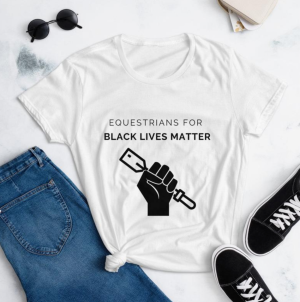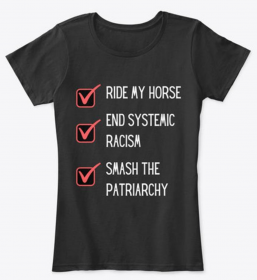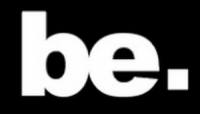In summer 2020, we launched a 1st Annual $5,000+ Diversity Scholarship with the support of generous donors, inviting minority equestrians to contribute to the discussion of diversity and inclusion in equestrian sport. It is the mission of this annual bursary, which we intend to expand in coming years, to call for, encourage, elevate and give a platform to minority voices in a space where they are underrepresented.
How do we build a more diverse, inclusive and accessible sport? In the coming weeks, we will explore this question alongside many of the 27 Scholarship recipients as they share with us their essays in full. Collectively, their perspectives coalesce into a body of work that will no doubt help inform a viable path forward for equestrian sport, and we are committed to connecting their actionable ideas with the public as well as leaders and stakeholders of the sport.
Today we welcome Jen Spencer. More voices: Jordyn Hale | Dawn Edgerton-Cameron | Madison Buening | Caden Barrera | Deonte Sewell | Anastasia Curwood
Hi, I’m Jen. I’m 26 and from Toronto, Canada and I’m a Black equestrian. Let me tell you a little bit about myself and my background in riding.
The first time I fell in love with horses was actually in a bookstore. I noticed this book with a beautiful horse running across the cover and I was completely captivated so I begged my mom to buy me the book. She did, and I think I read that book every day for two years until I finally took real horseback riding lessons. My parents were not horsey people and I think they saw it as, you know, the usual girl-likes-horses kind of interest as opposed to like a real passion. My mom immigrated from Jamaica in the 1970s and my dad was raised by a single mom, so in their world, having a horse was such a weird and foreign concept to them.
So because I couldn’t ride, instead I learned as much as I could about horses by watching as many horse videos as I could and reading as many horse books as the library had to offer. It really wasn’t until I had a job of my own and I could drive myself to my own lessons that I really got into horses the way that I wanted to consistently. I’ve been riding for four years now. Two years ago I adopted a retired racehorse named Piper. I got really lucky with Piper — he’s incredibly talented, very sweet and he’s done so much for me in terms of realizing some of my dreams like attending my first horse show. I’ve grown as a rider so much because of him.
I don’t currently have the means to show so instead I love going to watch other people show, and when I go to these show venues I’m very aware that out of the hundreds and hundreds of riders I’m the only Black person I see all day. I’ve always been aware of the huge racial disparity in equestrian sports, but I wasn’t really sure what I could do about it. Then during the Black Lives Matter movement of 2020 this year, I started to really think more critically about race, and I’ve always been passionate about social justice and Black issues as separate interests outside of riding, and the idea of bringing them together was something I hadn’t really considered. Then at one point an acquaintance of mine reached out to me about joining a group of Black equestrians so I thought, great, it’s a chance to connect with a few people that I have two things in common with.
I was literally shocked at how many people were in this group of Black equestrians. We had to make a second group because the first one got too big and we couldn’t fit any more people into it. There are tons of Black equestrians. We’re still very much a minority in this sport but there is a much bigger group than I anticipated.
I thought I knew a lot about race before the protests and I really started to dig deeper into social issues and realized even as a Black woman I didn’t really know that much. There are so many layers to race and the way it relates to the social sphere — politics, history, culture, far beyond anything I ever knew and I grew up learning a lot about race. Another thing I’ve noticed is how often a lot of history of race and racism ended up going back to horses. Of course as a horse girl this was a subcategory I was fascinated by — for example 25 percent of cowboys were Black but they were never portrayed in western movies. I also didn’t know that horse racing was largely Black people at one point.
Anyway I knew I had a lot of learning to do and so did everyone else. I had so many ideas and so many things I wanted to talk about but I wasn’t sure where to begin, so I just started and created an Instagram page called Black Equestrians which just hit 3,000 followers [update at time of publication: over 4,100+]. Initially my goal was to just feature Black riders and show diversity within horseback riding, but then I quickly decided that it wasn’t good enough. It needed more. There’s so much privilege in equestrian sports. As we all know that is by no means a bad thing but it can really cloud your perception of the world outside of you, so I figured what a better audience to tackle issues of race and privilege than equestrians.
In the first month I’ve been writing Black equestrians I’ve learned three really valuable lessons. The first lesson: A lot of people don’t know what they don’t know. Race is very much like good riding or a good horse. When you grow up with it you know exactly what to look for and you can really see those subtle nuances from miles away. In the realm of racism a lot of white people are beginner crossrail riders. We have the basics down, we all know that racism is bad, but a lot of people legitimately cannot recognize the varying spectrum of more subtle racism. There are so many variations in levels, microaggressions, lack of diversity, inclusivity, cultural appropriation, the list goes on.
I thought I knew a lot about race but I now realize I really don’t. And this is a world I grew up in in the sense that I had a Black mother who was always teaching about racism. A lot of people have a hard time talking about racism because they don’t see it. There needs to be a huge shift and we need to remind people that racism is very much alive. The civil rights movement of Martin Luther King dealt with the more loud racism, like segregation and lynching. In the new generation of the civil rights movement we need to start learning about quiet racism and the subtle racism so we can stamp it out.
The second lesson is that white people are really keen to learn. Since I started Black Equestrians I have been pleasantly surprised at how white people are responding. They’re engaged, they’re sharing, I get messages all the time saying stuff like I didn’t know that or that’s a really great point, I hadn’t thought about it like that. For an industry like riding, where as I mentioned before it’s a particularly concentrated hub of privileged white people, I really thought that this would be more of an uphill battle. Not to say that there aren’t people who aren’t as open to learning or examining their own privilege, but ultimately people seem willing to listen and learn. And so it’s important that we create a medium to express Black issues for everyone to learn and what will be great as Black Equestrians develops is that we’ll be able to tackle the very niche problems about Black equestrians and what they face and we now have a platform to amplify those voices to people who are listening.
And the third and final lesson is that the best way to increase diversity in equestrian sports is to create an environment where everyone can see this as something that they can do. There isn’t a lot of diversity reflected in equestrian product advertisements or in magazines, and when we watch professionals compete at upper levels it’s again not particularly diverse. Those areas will take different amounts of time and resources to reflect diversity, but it’s important that we start. Diversity in equestrian sports is small but it’s there and it’s strong. In expanding the way equestrian sports are represented we can move away from the widely held idea of what a traditional equestrian looks like.
This sport has people from all walks of life, different income brackets, different races, different sexual orientations and different ages. The best way to increase diversity within our sport is if we create a sport where everyone sees a reflection of themselves, where where they can see this as something that they can do and be a part of especially because that really is what horses are about. They are the true reflection of Martin Luther King’s dream — they don’t care about the color of your skin, they only care about the content of your character.
Nation Media wishes to thank Barry and Cyndy Oliff, Katherine Coleman and Hannah Hawkins for their financial support of this Scholarship. We also wish to thank our readers for their support, both of this endeavor and in advance for all the important work still to come.
Get involved! First things first, if you aren’t already following Black Equestrians on Instagram, do it right now! Black Equestrians also has an Etsy shop with a bunch of fun, feisty tee-shirts — I just ordered this one … … and this one …


 Social media is a powerful tool in the fight for social justice and social change. What are some of your favorite diversity-and-inclusion focused social media accounts to follow, equestrian or otherwise? Share them in the Facebook comments so that we can follow them, too!
Social media is a powerful tool in the fight for social justice and social change. What are some of your favorite diversity-and-inclusion focused social media accounts to follow, equestrian or otherwise? Share them in the Facebook comments so that we can follow them, too!
